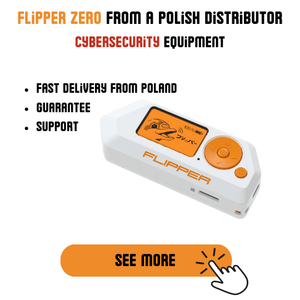
Online Privacy – Do Your Digital Cleanup
Our online presence is more than just a virtual account or a list of Facebook friends. It's a complete digital identity – a collection of data that can be used both in ways that protect our privacy and in ways that pose a threat. With every click, every login, every subscription, we leave a trace that can become a target for cybercriminals. Taking care of your online security doesn't have to be complicated or time-consuming. All it takes is regularly conducting digital cleanups – similar to offline life, where from time to time we clean out our closet or desk. Caring for online privacy and security is also a matter of consistency. Every quarter, in a short time, you can perform a security audit that will allow you to regain full control over what happens to your data. In this article, we'll guide you step by step on how to do this, so you can feel safe and consciously navigate the digital world.
From this article you will learn:
-
Why it's worth doing digital cleanups quarterly and how they affect your online security.
-
How to perform a step-by-step audit of your accounts, passwords, and devices.
-
How to protect your privacy online and avoid data breaches.
-
What is the right to privacy on the internet and what you can do when someone violates it.
What is Internet Privacy?
Internet privacy refers to the right to protect your personal data and maintain anonymity in the digital space. Our data, search histories, shopping preferences, and even conversations can be collected, stored, and analyzed by companies or governments. Protecting privacy thus becomes not only a matter of comfort but also of security.
What is Online Data Privacy?
Online data privacy means having control over what information about us is collected, stored, and shared with others. This applies to both our personal data and information we generate during daily internet use and visiting our favorite sites for various purposes. This information includes browsing logs, data about our devices, location, as well as social media data.
Online data privacy is hugely important because our digital identity is becoming an increasingly valuable resource that can be used in unauthorized or even illegal ways.
The right to privacy on the internet is guaranteed by a number of provisions and regulations, including the General Data Protection Regulation (GDPR). GDPR gives internet users the right to:
-
access their personal data;
-
correct outdated or incorrect data;
-
delete data (the so-called right to be forgotten);
-
restrict the processing of their data.
It's worth knowing these rights and regularly checking whether the companies whose services you use comply with these principles.
What to Do in Case of Privacy Breach?
If you suspect that your data has been stolen or improperly processed, report it to the appropriate authorities, such as the General Inspector for Personal Data Protection (GIODO) or, in case of a data breach, directly to the company that may have been the source of the breach.
We also recommend the article on the Sapsan blog: What is Cybersecurity?
How to Protect Your Privacy Online?
Securing your online privacy requires activity and awareness. Learn a few basic steps worth taking to effectively protect your data:
1. Enable Two-Factor Authentication (2FA)
A password is the basic element of account protection, but on its own it may not be enough. That's why it's so important to enable two-factor authentication (2FA), which adds an additional layer of security, for example in the form of an SMS code, mobile app, or hardware key (e.g., YubiKey).
Remember: regular password changes are not recommended. Such practices often lead to creating predictable and weak passwords (e.g., "password2023" → "password2024"). It's better to focus on creating strong, unique passwords (preferably long phrases), using a password manager, and enabling 2FA on important accounts. Also check our post about whether a password generator makes sense.
2. Check Account Logins
It's worth checking activity logs on your online accounts from time to time, especially if we notice any suspicious activities. Most platforms allow you to view recent logins and locations from which login attempts were made. If you find a suspicious login, immediately change your password.
3. Delete Unused Accounts
Remember, the more accounts you have online, the greater the risk that your data will be stolen. That's why it's worth regularly reviewing your subscriptions and accounts in various services and deleting those that are no longer needed. It's also a good time to update security on remaining accounts.
4. Update Software
Operating system and application updates are one of the simplest but also most important ways to protect against cyber threats. They patch security vulnerabilities that could be exploited by cybercriminals.
5. Secure Your Devices
Make sure all your devices, including computer, phone, or tablet, are properly secured. Enable screen lock and data encryption features.
Regular online security audits are really a very important element of caring for our internet privacy. Quarterly digital cleanups will help you maintain full control over your data and secure your accounts against cyber threats. Remember that online security is not just about using strong passwords, but also consciously managing your accounts, applications, and personal data.
Online Security Audit – Downloadable Checklist
To help you conduct an online security audit, we've prepared a checklist for you to save and place, for example, in a visible location on your desktop, which will allow you to regularly conduct digital cleanups:
Online Security Checklist:
-
Passwords:
-
Are passwords for all accounts strong and unique?
-
Are you using a password manager?
-
Do you have two-factor authentication (2FA) enabled for your most important accounts (email, banking, social media)? Check out hardware keys!
-
Logins:
-
Do you regularly check activity logs on your accounts?
-
Have you enabled two-step verification where possible?
-
Unused accounts:
-
Do you regularly delete unnecessary accounts?
-
Do you check which apps and websites have access to your Google or Facebook account – for example, those you logged into with one click?
-
Software:
-
Are all applications and operating systems (Windows) updated?
-
Do you have automatic updates enabled?
-
Device security:
-
Are devices secured with password/biometrics?
-
Do you have data encryption enabled on mobile devices and computers?
-
Network security:
-
Do you avoid opening suspicious emails, attachments, and links from unknown senders?
-
Do you have antivirus software?
-
Is your home network secured with a strong password and current encryption protocol (e.g., WPA3)?



